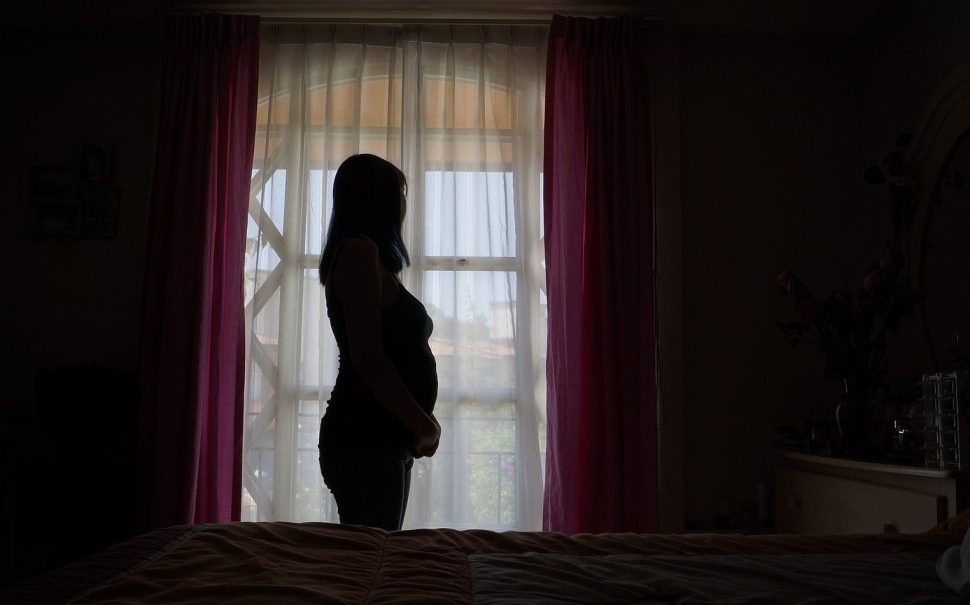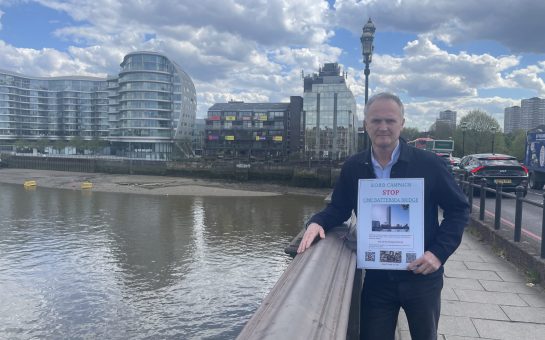Conception rates amongst girls under 18 have been steadily dropping in London, more than halving between 2012 and 2022, according to a recently released Office of National Statistics (ONS) dataset.
The amount of under-18s having pregnancies dropped from 879 in June 2012 to 379 in June 2022, signalling a 57% decrease.
This drop follows the national trend, as across England, conception rates have similarly dropped.
Nevertheless, London’s drop is notable, as its rates have dropped below the West Midlands and Yorkshire and the Humber.
British Pregnancy Advisory Service CEO Heidi Stewart said: “The cost of living crisis is having a significant impact on reproductive choice.
"Our recent survey of more than 1,300 women showed that financial factors have either mainly or partly impacted the decision to end a pregnancy for the majority of women (57%).
“This has no doubt exacerbated an already downward trend in teenage conception as more women and girls are choosing to have children later in life, or not at all.”
The data also indicates a significant dip in under-18 conceptions in 2020, corresponding with the COVID-19 pandemic.
Stewart added: “We know from studies of European countries following the 2008 recession that young people are most likely to experience a decline in childbearing in response to shocks and crises.
“COVID-19 saw a forced decline in socialising, as well as a subsequent cost of living crisis. Meaning teenagers were spending less time with each other and facing an increasingly uncertain financial future."
Greater access to contraception and abortions may have contributed to the gradual decline in under-18 pregnancies.
More under-25s are choosing long-acting reversible contraception (LARC), and more are getting repeat abortions, according to government data collected from abortion clinics.
Additionally, the total abortion rate has gradually increased from 2014 to 2022.
Support for abortion rights has strengthened, with 80% of people in London supporting abortion in May 2024, compared with only 11% who do not, according to YouGov data.
“Has contraception and abortion access contributed to the drop in under-18 conceptions? Absolutely,” said Alison Hadley OBE, Director of Teenage Pregnancy Knowledge Exchange and Teenage Pregnancy Advisor to Public Health England.
Hadley spearheaded England’s teenage pregnancy strategy, which cost £280 million over its ten-year implementation period, from 1999 to 2010.
“Since the start of the teenage pregnancy strategy, inner London has seen a drop of around 82% to 85% in teen conceptions from 1998 to 2021,” she said.
Hadley named Wandsworth, Croydon, Richmond and Merton as areas that have implemented particularly strong sex education programmes.
The boroughs are part of the London-wide condom scheme, aptly named ‘Come Correct’.
“This has been really important in engaging boys and young men in prevention, as well as girls and young women,” Hadley said.
Additionally, since March 2020, women in England and Wales can take both abortion medications, mifepristone and misoprostol, at home, without the need to first attend a hospital or clinic. This was a temporary measure made permanent by parliament in March 2022.
Beyond access to contraception, abortion, and sex education, changing social norms can explain the decline in teen pregnancies.
Professor of Public Health Evaluation at Glasgow University Peter Craig said: “The trends reflect wider social and economic trends, including changes in the way young people interact with one another and changing expectations about education and careers.”
However, in some areas in London, teen pregnancy remains comparatively high. According to the data, Croydon has the highest rate of under-18 pregnancies in London in 2022.
Croydon's shadow cabinet member for children and young people Amy Foster said: “Equitable access to healthcare is an issue in Croydon and we already residents across the borough struggle to get appointments at their GP within a few days of the call.
“It is no different at our sexual health clinics and the queues for emergency appointments can be intimidating for many vulnerable people, including teenagers.
“Once again, it seems Croydon’s young people are bearing the brunt of our challenging financial crisis and it is clear we need the national Government to take action to improve public health data in our borough.”
The causes of teen pregnancies often include a lack of comprehensive sexual and relationship education, limited access to contraceptives, and socio-economic factors such as poverty and economic instability.
Teen pregnancy is associated with poor outcomes for young women and their children.
For mothers, there is a higher risk of poor educational attainment, social isolation and poorer mental and physical health, while their children are more likely to be born preterm or with low birth weight, according to University of Pennsylvania research.
Hadley pointed out that it is not completely clear what the impact of COVID has been on teen pregnancies, as data is only available as of June 2022.
She said: “I do worry about a cohort of young people who were really affected by COVID in school.
“Some of them haven't returned to education in year 10 and 11, and they will be accumulating risk factors for unplanned pregnancies - we know that school absence and poor attainment are two of the associated risk factors.
“Everywhere across the country really needs to look out for the 15, 16, and 17 year olds, who are perhaps not in mainstream education and are maybe a little bit adrift because of what's happened through COVID.”
While not all teen conceptions are unplanned, teens remain at the highest risk of unplanned pregnancy, with more than half of under-18 conceptions in England and Wales in 2017 ending in abortion, according to ONS data.
Hadley said: “The vast majority of those abortions were probably unplanned pregnancies. There is more to do in trying to help young people prevent pregnancy in the first place.
“Obviously, abortion is an absolutely essential choice and easy access is essential, but avoiding pregnancy in the first place would be a better option.”
A Croydon Council spokesperson said: “Croydon has the largest population of young people in London. We are working with our partner organisations to support young people with their health and wellbeing.
“This includes Croydon Health Services’ sexual health team being available to talk to them at schools, and other local venues including the Point Clinic, Turnaround Centre and Family Hubs at different times of the week.
“We are also refreshing our teenage pregnancy action plan to reduce our teenage conception rate and to continue building on the work that is already taking place to support and educate young people.”
Featured image credit: MarijoAH12 via Wikimedia Commons (CC-BY-SA-4.0)





